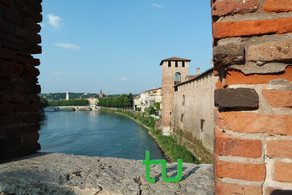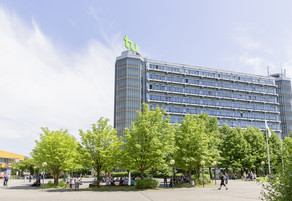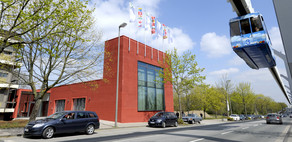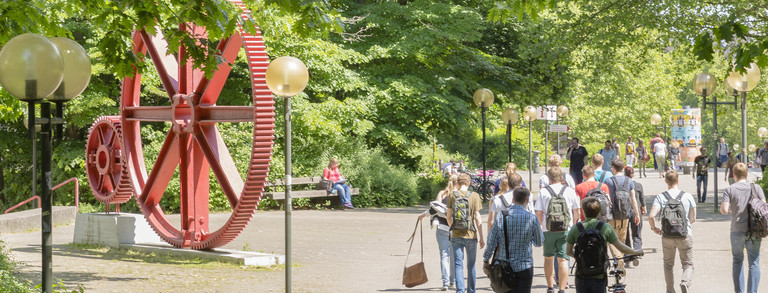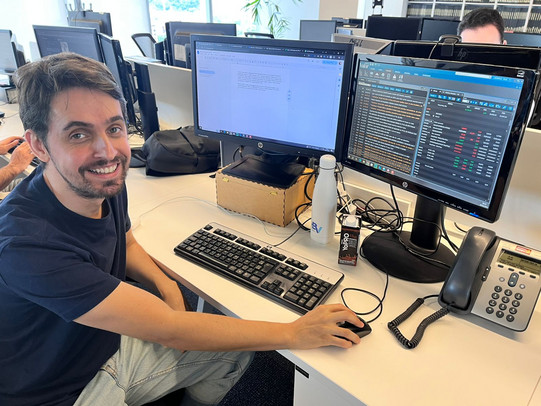“I was impressed by the practical orientation of my degree course”
Arthur Cagliari studied Journalism at the Pontifícia Universidade Católica in Campinas, Brazil. As part of the Brazilian government's “Science without Borders” scholarship program, he spent three semesters studying journalism at TU Dortmund University starting in the winter semester of 2012/2013. Today, he is an editor at major Brazilian newspapers and tells us in this interview in which way his studies at TU Dortmund University influenced his career path.
This interview was conducted in German and translated into English. You can find the original version on our German-language alumni pages.
Can you give us an insight into your professional career to date?
I was very happy that I was able to study at TU Dortmund University for three semesters in the Winter semester 2012/2013, because I only found the special focus of the journalism course in this form at TU Dortmund University. Before my time in Dortmund, I had already spent a year in Germany as a language student. After that year, I knew that I definitely wanted to go back to Germany.
After completing my degree, I was able to apply a lot of what I learned during my studies at TU Dortmund University when I started my career in São Paulo at Folha (note: Brazil's largest daily newspaper). I have also used my language skills a lot: At Folha, I worked in the business department and had to contribute a lot of my own ideas - I was able to cover many topics related to Brazil and Germany. I also have frequent contact with German companies in Brazil: for example, when I interviewed the head of the Daimler Group, it was much easier to establish a personal approach because we could talk in German and Portuguese. I was also able to use this knowledge during a visit by the then German Federal Minister for Economic Cooperation and Development.
I now work for Valhor Economico, a business and financial daily newspaper. I often have to get the perspective of foreign economists and analysts on Brazilian economic and monetary developments. I always conduct these interviews in German. Even if I write an e-mail in German instead of English, access to the experts is often easier, because language is a channel to gain attention and establish better access to people.
What surprised you during your studies at TU Dortmund University?
I was impressed by the practical orientation of my degree course. My knowledge from the camera and filming course alone has helped me so many times in the course of my career - even when I am just recording a video with my cell phone for work, I still draw on the knowledge from the course. In Brazil, you normally attend a few more technical courses after your studies, but I already had this knowledge from my studies at TU Dortmund University, which was an advantage for me when I started my career.
How would you describe your working day, like a “typical Tuesday”?
My working day starts very early. I watch the currency market all day and see whether the Brazilian real is losing or gaining value. My job is then to quickly find out the background with my sources of experts and analysts and explain this to our readership. At the same time, I work on my own topics and reports, i.e., longer texts with more data and background information. Overall, I am definitely working in my dream job at the moment!
Which advice would you give to students who would also like to come to Germany for an exchange?
In my opinion, learning German is the most important thing, because then you can understand the lectures, make contact with other students and make more friends. The difference between everyday language and academic German is quite big - that was a challenge for me, but also a great opportunity to develop myself further. The most important thing for me at the beginning was attending the listening comprehension German course at the university. There I learned that I had to prepare thematically for each lecture and read texts beforehand. This was the key for me to understanding much more. Studying abroad is not always easy. The whole experience abroad is enriched as soon as you speak the language better and therefore have more contact with Germans.
Are you still in contact with people at TU Dortmund University?
Yes, I am still in contact with some of them and also meet up with friends from that time in Germany and Brazil. We also exchange ideas professionally, for example when I write a text on a topic with a German connection or my friends have questions about Brazil. I also read a lot about Germany. Some of my former fellow students now work for media outlets such as “Der Spiegel” or “Die Zeit”, which I like to read or listen to in order to continue practicing my German. I recently listened to a podcast on “Zeit online” and only after a few episodes did I realize that a friend from my time at TU Dortmund University was producing it.
Thank you very much for the interview!
You Might also be Interested in:
Back to "Alumni International"
Find more information about TU Dortmund University's Alumni Network
More testimonials from international students and scientists:
- Magda H. Barecka from Poland
- Sina Sharif Mansouri from Iran
- Yu Kawahara from Brazil
- Sendhil Raja from India
- Lara from Brazil
- Loran from Indonesia




